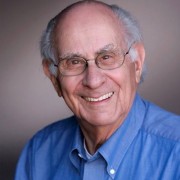December 15, 1987 - 10:00 AM
The witness is the University of Mississippi Men's Basketball team physician, Dr. Raymond Madison. Detectives Terry Nelson and David Anderson interviewed Dr. Madison in his office at 504 Azalea Drive in Oxford. The interview was recorded with the witness' full knowledge and consent on a portable tape recorder.
Participants:
- Detective David Anderson
- Detective Terry Nelson
- Doctor Raymond Madison
Dr. Madison: Good morning, gentlemen. Thank you so much for coming to me this morning. I have a meeting later that I really couldn't miss.
Detective Anderson: Glad to do it, sir. Anything that will help us get to the bottom of this young man's death.
Dr. Madison: I agree. I have the parents' signed release right here, so I can give you information about his medical condition if you need it.
Detective Nelson: Did you know Kevin Gilmore well?
Dr. Madison: Probably better than some of the other athletes. Usually the coaches and athletic trainers have a closer relationship with the athletes.
Detective Nelson: Why's that?
Dr. Madison: I mostly coordinate the pre-participation screening, examination and evaluation of the athletes, but I don't necessarily see them all unless there's a problem.
Detective Nelson: You don't go to the games?
Dr. Madison: I try to attend as many as possible, but if I can't, I assign a qualified physician to fill in. At any rate, I did see Kevin several times regarding his diabetes.
Detective Anderson: Do you know when he was diagnosed and the progression of his diabetes?
Dr. Madison: I believe he was diagnosed with Type 2 diabetes when he was in high school. That was controlled by diet, exercise and sometimes medication, but insulin injections were not necessary. Then later, when his blood glucose levels escalated, he was put on insulin for Type 1.
Detective Anderson: How did that work out—the insulin injections? It must be hard for a kid to adjust to that.
Dr. Madison: He seemed to have adjusted well, but he told me he was embarrassed to give himself injections in front of other people because of what they might think. I guess he was afraid they'd think he was injecting something else. He said he sometimes would postpone his injections because of that. I impressed upon him the importance of keeping a schedule so his bloods glucose level could be stabilized.
Detective Nelson: Did he ever postpone his injections so long it became dangerous?
Dr. Madison: No, we didn't ever have any indication of that. All in all, Kevin was conscientious about his insulin regimen. He told me that he'd had to take a relative to the hospital once because she didn't regulate her insulin injections correctly. This impressed him.
Detective Nelson: How so?
Dr. Madison: Athletes need to be especially conscious of their condition. Kevin understood that, because exercise lowers the blood sugar, an athlete needs to reduce the insulin dose before exercise. Exercise also can increase the amount of insulin in the blood stream. Either of these conditions can cause symptoms which the trainers and coaches could spot.
Detective Anderson: Would it surprise you, then, to learn Kevin died of complications from diabetes?
Dr. Madison: Oh no! He seemed so in control of his condition—at least he tried. Sometimes if he'd get a bit lax with his tests during a game, the coach or the trainer would remind him. Or if he showed any signs of variable moodiness, paleness, tremor or any other indication of hypoglycemia, they would make sure he'd drink a high carbo drink. I think this only happened once during a game. But—died of complications? What on earth happened?
Detective Nelson That's what we're trying to determine, Doctor.
Dr. Madison. Well, anything I can do to help. Is there anything else I can assist you with?
Detective Anderson: How did he get along with his teammates?
Dr. Madison: He seemed to get along with them. He'd show some frustration with them at times, but they seemed to get along OK. He was a fierce competitor.
Detective Nelson: How would you characterize your relationship with Kevin?
Dr. Madison: Just a doctor/patient relationship. His health and basketball were what we talked about mostly.
Detective Nelson: When was the last time you saw Kevin?
Dr. Madison. You mean on a one-on-one basis?
Detective Nelson: Yes.
Doctor Madison: Let's see I think it was in early November— just after the season started. I called him in to check with his progress on managing his diabetes.
Detective Nelson: And how was he doing?
Dr. Madison: He seemed to be adjusting better than last season. He wasn't as self-conscious about giving himself injections. He said he was really trying to keep a regular schedule of his injections and his meals, and he was testing often—as much as he hated that part of it, pricking his fingers. I really don't understand how he could have died. Do you have any more information about that?
Detective Anderson: Not yet, sir. Hopefully the information you've given us will shed some light on that.
Detective Nelson: Thank you so much for your time, sir.
Dr. Madison: You are very welcome, Detective. How are his parents doing?
Detective Nelson: They're pretty beat up about it. I hope we can find something that gives them comfort. Good day, sir.
Dr. Madison: Goodbye, Detectives.
Interview ends: 10:23 AM

